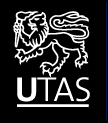Felipe Briceno, IMAS
Venue: Taroona seminar room
Date: 28 May 2012
Time: 11:00 AM
Abstract:
Tasmania produces 23% of the total Australian commercial aquaculture and fishery yield. Southern rock lobster (SRL), Jasus edwardsii, is the second most important fishery resource in Tasmania, and has been identified as an “early warning signal” for how Australian fisheries may be impacted by climate change. Quantitative stock models have already been developed that can project potential impacts of climate change for the Tasmanian Southern rock lobster fishery. However, to achieve a broader understanding of future climate change impacts on the Southern rock lobster fishery, there is an urgent need to integrate other responses related to ecosystem functions, structure or quality (‘ecosystem surprises and ecological thresholds’). For example, the interaction between rock lobster and its predators are likely to change as well, with some evidence that octopus, key predator of rock lobster, may increase in abundance under climate change.
The following PhD project will evaluate how the predator-prey interactions of rock lobster and octopus are likely to alter under climate change scenarios. Using innovative approaches, the project will focus on the following aims: (i) to define those biotic and abiotic key components related to highest levels of octopus predation over various spatial and temporal scales; (ii) to define/assess the predator and prey behavior under specific environmental scenarios; (iii) to define the thermal niche of each species based on thermal physiological experiments; (iv) to model projected prey/predator distribution and abundance using mechanistic modeling approaches.
In addition, the current PhD project will provide a strong ecological framework that can be integrated into bioclimatic models developed for Southern rock lobster populations in order to reach a broader understanding of suggested stock rebuilding strategies for this important fishery in Tasmania.


